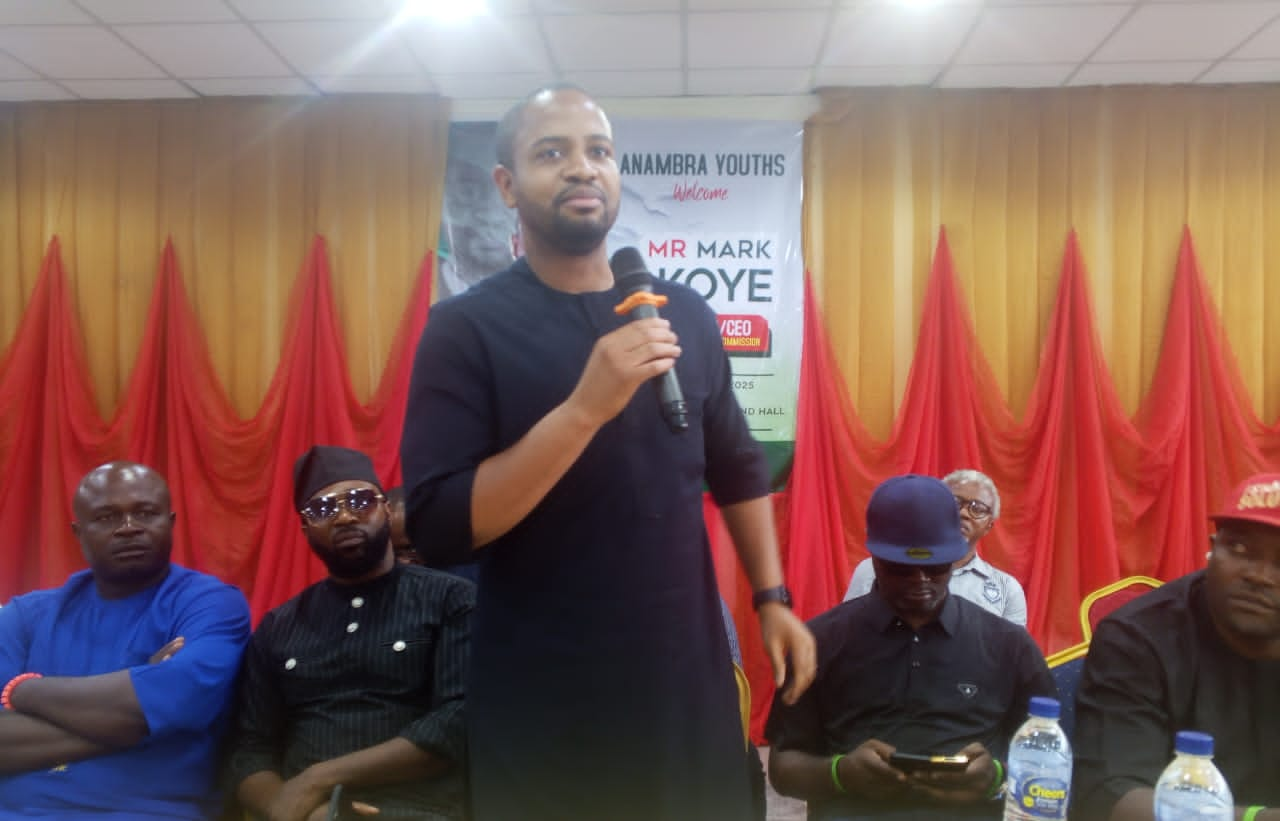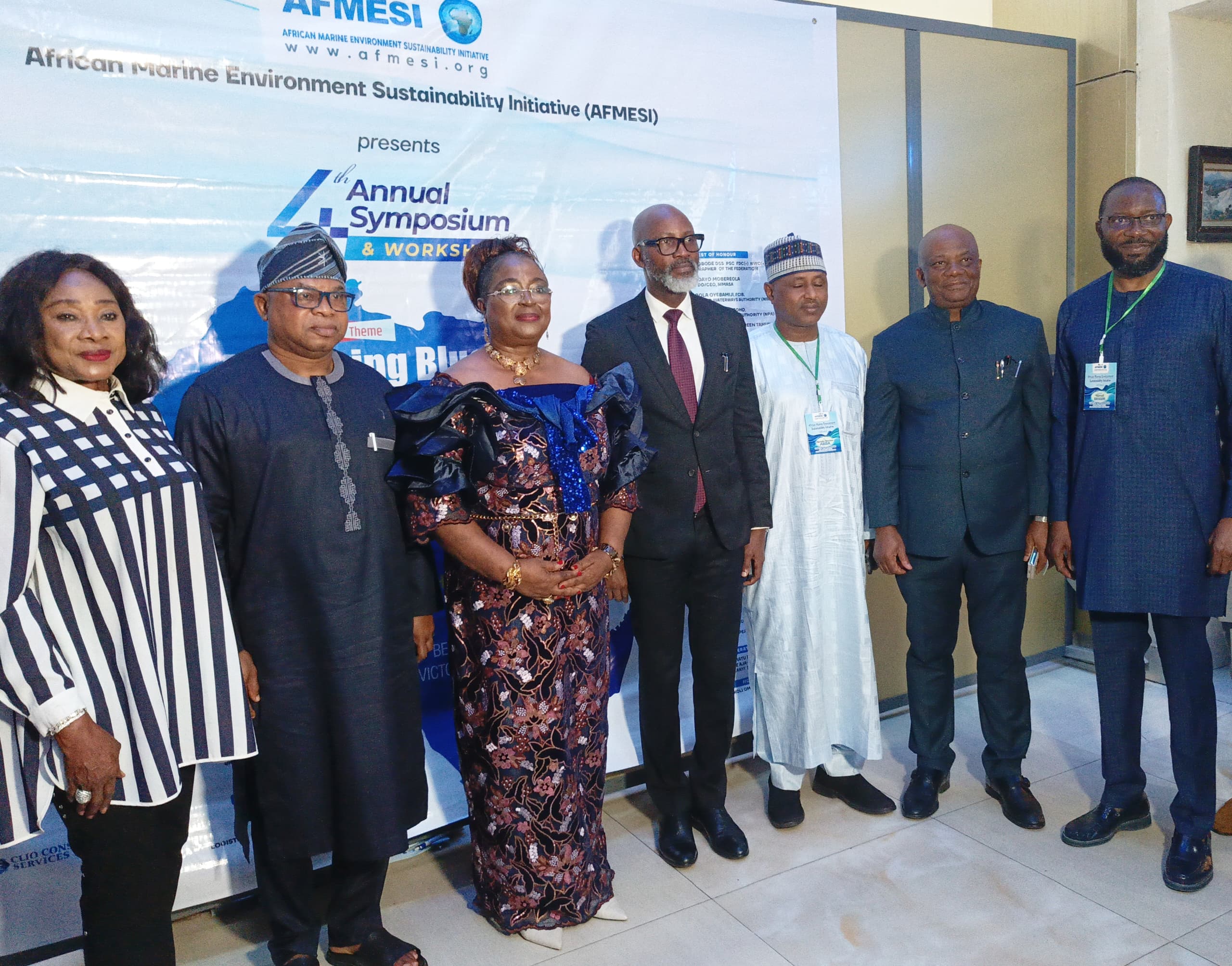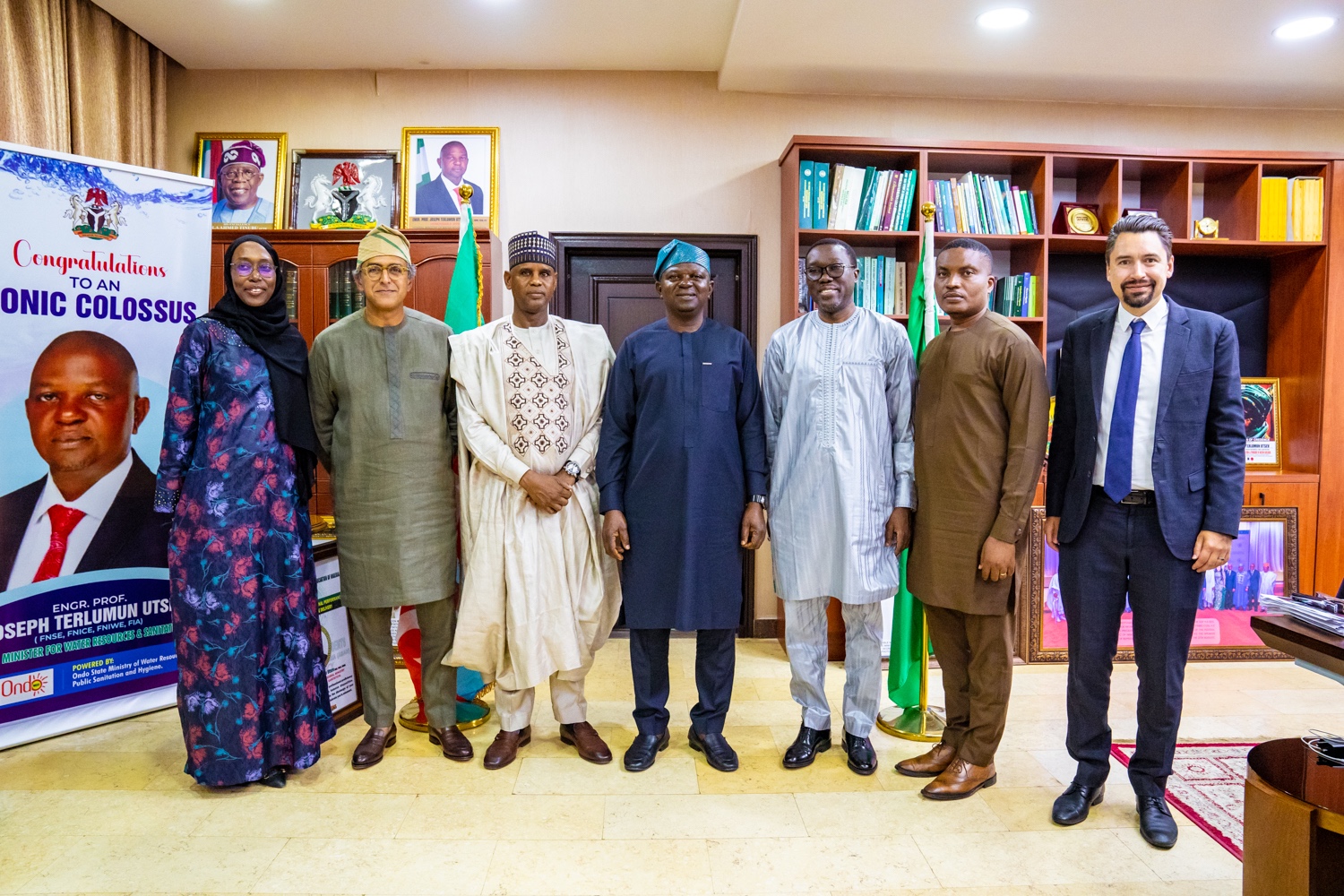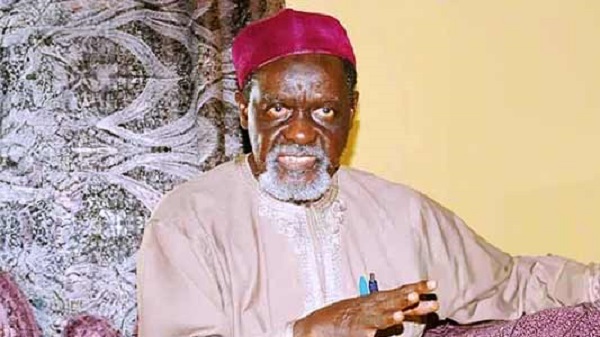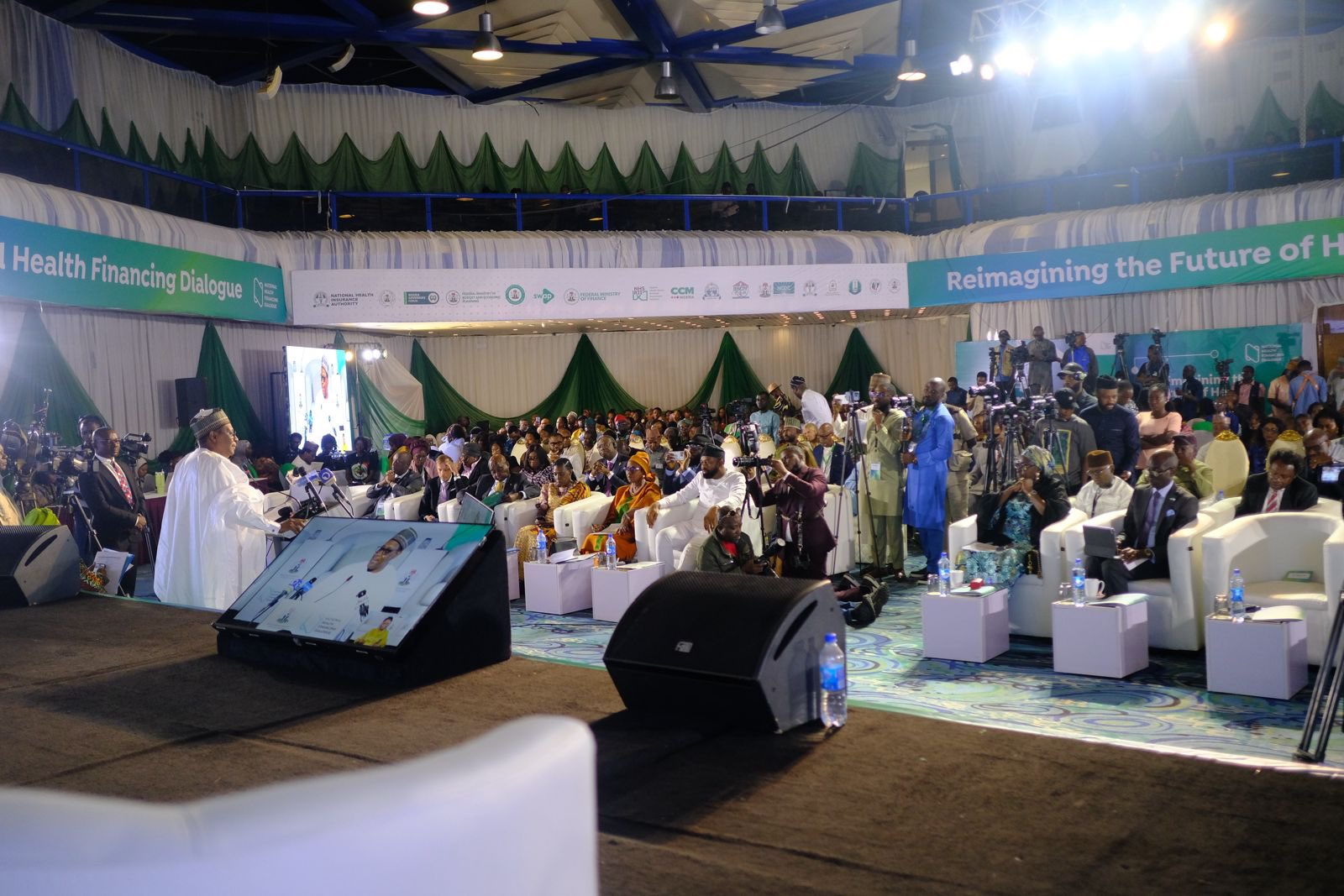
By Fatima Saka
The Federal Government of Nigeria has reiterated its commitment to strengthening health financing and expanding access to quality care, with a bold target of enrolling at least 44 million Nigerians under health insurance by 2030.
Giving his Keynote addressed, the Coordinating Minister of Health and Social Welfare, Professor Muhammad Ali Pate, made this known at the Day-four, closing of National Dialogue on Health Financing, in Abuja, which drew more than 2,000 participants onsite and online, including civil society organizations, health fellows, development partners, state governors, and the private sector.
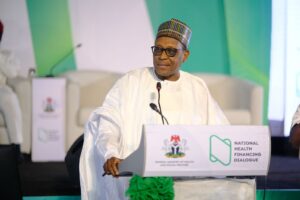
Professor Pate emphasized that the dialogue was not intended to be a “talk show,” but a platform to generate measurable commitments that will outlive the four-day engagement. He credited President Bola Ahmed Tinubu’s administration for laying the foundation of the Health Sector Renewal Investment Initiative, which has expanded the Basic Health Care Provision Fund (BHCPF) to thousands of primary health centers and facilitated the enrolment of more than 20 million Nigerians into health insurance for the first time in decades.
The Minister disclosed that the new phase of BHCPF (2.0) would cover an additional 4,000 facilities in the coming months, while the recently approved policy on mandatory health insurance across Ministries, Departments, and Agencies (MDAs) would deepen financial protection for Nigerians. He noted that the initiative aligns with the administration’s vision of ensuring affordable life-saving interventions for women, children, and vulnerable groups.
Highlighting recent reforms, Pate revealed that the government had introduced subsidy mechanisms for dialysis, obstetric and fistula care, as well as the 2025 Catastrophic Health Insurance Fund to cover cancers, kidney diseases, and spinal surgeries. He also pointed to progress in local pharmaceutical manufacturing under the Presidential Value Chain Initiative, noting that the government was committed to reducing dependence on imports.
The Minister stressed that health financing must be owned collectively by all tiers of government, urging states and local councils to increase budgetary allocations, release funds promptly, and domesticate national health laws. He further called on the private sector, civil society, and the Nigerian diaspora to mobilize investments into the health sector through innovative financing and public-private partnerships.
“Healthcare is not a costit is an investment. When people are healthy, they can work, they can learn, and they can contribute to national security and prosperity,” Pate said, adding that transparency, accountability, and evidence-driven policies would remain at the heart of the administration’s health reforms.
Linking the Federal Government’s Bold Economic Reforms to Sustainable Health Financing, the Minister of Finance and Coordinating Minister of the Economy reaffirmed the Federal Government’s commitment to sustainable health financing, stressing that ongoing economic reforms are designed to directly improve healthcare delivery across Nigeria.
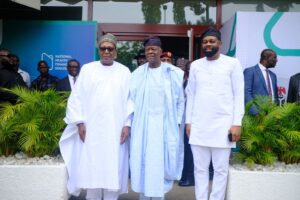
The Minister noted that the dialogue convened by the Coordinating Minister of Health and Social Welfare, Professor Muhammad Ali Pate, is crucial to aligning fiscal policy with the nation’s health agenda. He emphasized that Nigeria’s success in healthcare depends on mobilizing, pooling, and allocating financial resources in ways that guarantee equitable access for citizens.
“The reforms we are implementing, removing distortions such as fuel subsidy, strengthening tax administration, and driving structural changes in energy, logistics, and education, are all geared towards restoring stability and creating fiscal space,” he explained. “These steps ensure that the gains from economic recovery are felt where they matter most: in clinics, communities, and households.”
He highlighted that over 74 percent of Nigeria’s healthcare expenditure currently comes from private spending, with government and donor contributions accounting for just 14.5 percent each. According to him, this imbalance underscores the urgency of crowding in private sector investment, while ensuring mandatory health insurance, recently directed by President Bola Ahmed Tinubu, becomes a practical reality for all Nigerians.
The Minister further noted that the removal of fuel subsidy has doubled states’ allocations from the Federation Account, empowering them to play a stronger role in financing healthcare. He added that health insurance, coupled with risk pooling and premium subsidies for the poorest, remains central to building a sustainable and inclusive healthcare system.
“Our goal is clear: to build a modern and progressive society where health care is accessible, affordable, and reliable. Insurance will no longer be optional. It will be enforceable, scalable, and sustainable,” he stated.
He commended Professor Pate for accelerating the rollout of radiology, diagnostic, and oncology centers nationwide, describing the initiative as a reflection of President Tinubu’s broader reform agenda. The Minister also stressed that macroeconomic stability must translate into stronger primary healthcare, where Nigerians first seek care.
“Budgets ignite the effort, insurance and investment scale it, and discipline sustains it,” he said. “Together, we must ensure that our health financing reforms deliver real impact in the lives of ordinary Nigerians.”
In reimagining health financing as a sovereign and strategic priority, with a strong focus on universal health coverage and financial protection for all Nigerians, the Permanent Secretary of the Federal Ministry of Health and Social Welfare, Daju Kachollom, described the three-day dialogue as a “defining moment” for the sector. She noted that the gathering of voices from government, civil society, academia, and the private sector had set the stage for coordinated action towards a sustainable health financing architecture.
Kachollom disclosed that President Bola Ahmed Tinubu has directed strict enforcement of the Mandatory Health Insurance Act 2022, with immediate effect. Under this directive, ministries, departments, and agencies (MDAs) are required to engage only vendors who are enrolled under the National Health Insurance Authority (NHIA), thereby ensuring wider risk protection and compliance across sectors.
“The Ministry of Health will lead from the front. All vendors doing business with the Federal Ministry of Health, its agencies, federal tertiary hospitals, and all other supervised institutions must comply with the mandatory health insurance requirement, which is here to stay,” she stressed.
reaffirming Nigeria’s leadership role in driving health sovereignty on the continent, Kachollom emphasized that the dialogue was not an end in itself but a “launch pad” for bold fiscal reforms, innovative financing models, and stronger public-private partnerships.
She urged stakeholders to align strategies, mobilize domestic and private resources, and ensure that every investment and policy reform directly advances Nigeria’s journey to universal health coverage.
“Health sovereignty is no longer aspirational, it is actionable. Let us commit to reforms that will protect our citizens from financial hardship, strengthen human capital, and secure our systems against future shocks,” the Permanent Secretary said.
Nigeria’s Global Leadership Role in Development, Mr. Matthew Verghis, World Bank Country Director for Nigeria, lauded the nation’s pivotal role in shaping not just Africa’s, but the world’s future.
“As Nigeria goes, so goes the continent, and indeed the world. With projections showing one in four people on earth will be African, and Nigeria set to become the fifth largest country globally, the path this country takes in health, development, job creation, and economic growth will determine whether it becomes a world leader or risks falling behind,” Verghis stated.
He stressed that the international community must move beyond imposing external agendas and instead listen to Nigeria’s priorities. “What we are witnessing here is not outsiders dictating what matters, but Nigerians themselves setting the vision. If the world does not align, it risks being left behind,” he added, affirming the Bank’s commitment to supporting Nigeria’s chosen path.
Health Financing is Nigeria’s Moral Imperative, Dr. Mohamed Yacoub Janabi, Regional Director, WHO Africa, praised Nigeria’s bold leadership in reforming health financing, describing it as a “moral imperative and continental signal.”
“In a country of over 223 million people, how health is financed is not just technical, it is moral, political, and transformative,” he declared.
Dr. Janabi highlighted Nigeria’s progress, including the Basic Health Care Provision Fund, the National Health Insurance Authority Act, and the legislative network for universal health coverage, calling them “political courage in action.” However, he warned against empty declarations, insisting: “What is needed now is bold, sustained, and accountable implementation.”
He called for increased public health spending, reduction of out-of-pocket expenses, and evidence-based decision-making, noting that “out-of-pocket payments recycle poverty.” WHO, he affirmed, remains committed as an ally: “Nigeria is showing what is possible. This is leadership that rises to the challenge, and we stand ready to walk this journey with you.”
Global Fund Commits to Deepening Partnership with Nigeria, Maria Kirova, Head of High Impact Africa One at the Global Fund, described the dialogue as “a critical moment for reshaping Nigeria’s health financing future.”
She commended Nigeria’s strong leadership in combating HIV, tuberculosis, and malaria, and highlighted investments that have strengthened systems, including health insurance expansion in five states, installation of oxygen plants in over 60 facilities, supply chain upgrades, and PHC revitalization.
Kirova stressed that sustainability must now be institutionalized, noting the Global Fund’s three-pronged support model: co-financing incentives, catalytic funding to leverage domestic resources, and deep collaboration with government and civil society.
“With the strong political leadership on display, this dialogue can mobilize more financing and deliver better health outcomes. The Global Fund is proud to be Nigeria’s partner on this transformational journey, and we stand ready to work hand-in-hand for a healthier nation,” she pledged.
Speaking on Nigeria’s Leadership Resonates Across West Africa, Representing the Director-General of the West African Health Organization (WAHO), Dr. Yugi Chiboso delivered a goodwill message reaffirming Nigeria’s continental role.
He conveyed four commitments from WAHO: appreciation of Nigeria’s political leadership, recognition of the dialogue’s high-quality organization, acknowledgement of partners’ contributions, and a firm pledge to support implementation outcomes.
“WAHO commits to supporting Nigerian authorities in implementing the results of this dialogue. God bless Nigeria, God bless West Africa, God bless Africa,” he concluded.
Nigeria is Building a Sustainable Health Financing Path, Mr. Uche Amauwu, Nigeria Country Director of the Gates Foundation, applauded the government for convening a truly inclusive dialogue.
“For the first time, I believe Nigeria’s health sector is speaking with one voice, with clarity and urgency,” he said, highlighting reforms such as the Basic Healthcare Provision Fund, sector-wide accountability compacts, and the expansion of health insurance.
He emphasized that Nigeria’s health financing journey is now backed by “very practical instruments that make the reforms meaningful and sustainable.” The Gates Foundation, he assured, will continue to provide catalytic funding, evidence-based policy support, and capacity strengthening to build resilience.
“This momentum must translate into memorable gains for Nigeria. We pledge to remain strong partners in this journey to universal health coverage,” Amauwu affirmed.

